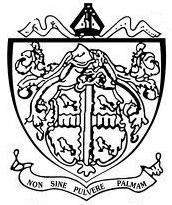Our Academic Programme
In adherence to the Ministry of Education’s Requirements, Bishop Anstey High School follows the Secondary Education Modernisation Programme (SEMP) Curriculum from Forms I to III.
During their fourth and fifth years, students follow the Caribbean Examinations Council (CXC) syllabus in preparation for the Caribbean Secondary Education Certificate (CSEC) examinations in various subjects, including a compulsory core of English Language, English Literature and Mathematics.
Constraints of space and staffing limit our intake of students into the Sixth Form (Lower VI and Upper VI) to two (2) classes totaling approximately 60-70 students. As a result, entry into the Sixth form is highly competitive, and is based in part on academic qualifications (students’ CSEC results and teachers’ assessments of their intellectual promise), attendance records, overall conduct, and involvement in school activities.
Our Sixth form students follow an intense and rigorous syllabus in preparation for the Caribbean Advanced Proficiency Examinations (CAPE).
CSEC Subjects Offered
The Bishop Anstey High School offers instruction in a wide range of subjects to our students. From Forms I to V, students study:
English Language,
English Literature,
French, Spanish
Art, Dance/Drama,
History, Home Economics,
Geography, Music,
Information Technology,
Environmental Studies
Mathematics,
Additional Mathematics
Biology, Chemistry,
Integrated Science, Physics
Principles of Accounts,
Principles of Business,
Economics
CAPE Subjects Offered
Sixth Form students may choose 3 subjects from the following list to study for the CAPE examinations:
Accounting,
Applied Mathematics,
Art & Design,
Biology,
Caribbean Studies,
Chemistry,
Communication Studies,
Economics,
English Literature,
Environmental Science,
French,
Geography,
History,
Management of Business,
Mathematics,
Physics,
Sociology,
Spanish

Click the arrow above to go back to the top.
Click the arrow below to read about Student Assessment.

Student Assessment and Reporting
To ensure that our students (i) correctly understand the theory and concepts of the subject matter being taught, and (ii) are developing critical thinking and analytical skills, we constantly assess our students, both formally and informally.
Our teachers often set review tests and quizzes as they complete particular topics; these tests may be short-answer, multiple-choice, written or oral; with our more senior students, tests usually involve examination-style questions. At the end of the Trinity Term, formal full-length examinations are held for all year groups, with the exception of our Fifth and Upper Sixth Form students, whose time is better spent in continuing to work with their teachers towards their Ordinary and Advanced Level examinations.
Work done in class or at home may be graded, together with individual or group project work. As such, all school work is to be done according to the instructions of the teacher and homework must be handed in at the specific time specified. If there is a good reason why this cannot be done, an explanation must be given to the teacher, as or before the work is taken up, and not when the teacher discovers it is missing.
Fifth and Upper Sixth Form students sit their “mock” examinations in March, in preparation for the CXC and Cambridge Advanced Level Examinations in May/June. School reports for Forms I – III show the average mark for all subjects, together with the appropriate grade:
Grade A = Very Good average; B = Quite Good; C = Fair; D = a need for improvement; E = unsatisfactory.
It is on the basis of these grades that Certificates of Academic Achievement, Outstanding Academic Achievement and Excellence in Academic Achievement are presented to deserving students at the annual Awards Ceremony.
In Forms IV – VI, where students are preparing for the CSEC and CAPE examinations, we evaluate student performance in each subject, not overall averages as in Forms I – III. In CSEC examinations, Grades I, II, and III are considered passing grades. In CAPE examinations, Grades 1, 2, 3, 4, and 5 are passing grades. In these forms, IV, V and VI, Academic Certificates at the annual Awards Ceremony are given on the basis of the number and quality of passes achieved.
Secondary Education Modernisation Programme (SEMP)
The Ministry of Education formalized and designed the Secondary Education Modernisation Programme (SEMP) to:
1. address deficiencies identified in Trinidad and Tobago’s education system;
2. establish a secondary education foundation that would firmly catapult Trinidad and Tobago into the 21st century’s global economic village, information super highway and cutting-edge technological advancements;
3. allow for adaptation to future demands; and
4. produce good citizens.
Certain deficiencies in the existing secondary schools education system have been identified, as follows:
1. an unacceptably low level of academic achievement;
2. unsatisfactory personal and social development outcomes;
3. curricular arrangements whose major outcomes were linked to the attainment of a minimum of five General passes in the Caribbean Examinations Council (CXC) examination.
SEMP consists of four articulated components:
1. improved educational equity and quality;
2. de-shifting, rehabilitation, and upgrading of schools infrastructure;
3. institutional strengthening;
4. studies and measures for improved sector performance.
(source: Ministry of Education of Trinidad and Tobago)
The Caribbean Examinations Council (CXC) and CSEC Examinations
CXC examinations are criterion-referenced and, as such, are primarily concerned with whether or not candidates have reached established levels of mastery. The critical question is:
Has a candidate demonstrated a given level of competence allowing the examiner to state with some degree of certainty that the candidate has attained the minimum standard required for a particular grade?
Thus, the CXC is interested in comparing candidates’ performance, not with other candidates in the group, but with the preset standard judged to be adequate for the award of particular grades. Grade decisions are based primarily on the competencies, abilities and skills that candidates must demonstrate in order to qualify for particular grades.
The CXC utilizes a six-point grading scheme in CSEC examinations that assess candidates’ performance under six (6) Overall and six (6) Profile grades as follows:
Overall Grades:
I: Candidate shows a comprehensive grasp of the key concepts, knowledge, skills and competencies required by the syllabus.
II: Candidate shows a good grasp of the key concepts, knowledge, skills and competencies required by the syllabus.
III: Candidate shows a fairly good grasp of the key concepts, knowledge, skills and abilities required by the syllabus.
IV: Candidate shows a moderate grasp of the key concepts, knowledge, skills and competencies required by the syllabus.
V: Candidate shows a very limited grasp of the key concepts, knowledge, skills and competencies required by the syllabus.
VI: Candidate shows a very limited grasp of the key concepts, knowledge, skills and competencies required by the syllabus.
Profile Grades:
A = Outstanding; B = Good; C = Fairly Good; D = Moderate; E = Weak; F = Poor.
CAPE Reports
CAPE candidates receive a report for performance on each Unit. For each Unit, candidates receive:
(a) an overall grade (I to VII) to indicate the quality of performance on the Unit as a whole;
(b) a module grade (A to G) to reflect performance on each module of the Unit.
Overall Grades
I: Shows an excellent grasp of the principles, concepts and skills contained in the syllabus. Applies principles, concepts and skills to problem situations and analyses, synthesizes and evaluates issues in a competent manner.
II: Shows a very good grasp of the principles, concepts and skills contained in the syllabus. Applies principles, concepts and skills to problem situations and analyses, synthesizes and evaluates issues in a competent manner.
III: Shows a good grasp of the principles, concepts and skills contained in the syllabus. Applies principles, concepts and skills to problem situations and analyses, synthesizes and evaluates issues in a competent manner.
IV: Shows a satisfactory grasp of the principles, concepts and skills contained in the syllabus. Applies principles, concepts and skills to problem situations and analyses, synthesizes and evaluates issues in a competent manner.
V: Shows an acceptable grasp of the principles, concepts and skills contained in the syllabus. Applies principles, concepts and skills to problem situations and analyses, synthesizes and evaluates issues in a competent manner.
VI: Shows a limited grasp of the principles, concepts and skills contained in the syllabus. Shows basic weaknesses in the application of principles, concepts and skills and in analyzing or evaluating issues.
VII: Shows a very limited grasp of the principles, concepts and skills contained in the syllabus. Shows little or no skills in the application of principles, concepts and skills in analyzing or evaluating issues.
Module Grades
A = Excellent; B = Very Good; C = Good; D = Satisfactory; E = Acceptable; F = Limited; G = Very Limited;
(source: Ministry of Education of Trinidad & Tobago)

Click the arrow above to go back to the top.

